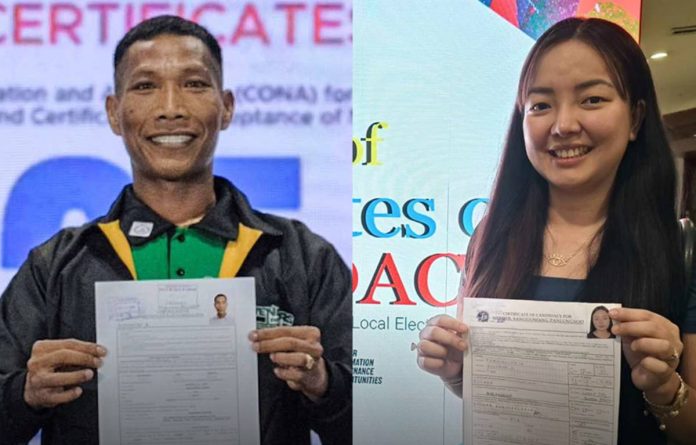
BY GEROME DALIPE IV
ILOILO City – The entry of social media influencers and vloggers into politics ahead of the 2025 midterm elections in the country has sparked significant public interest and debate.
With their massive online following and direct engagement with the public, these influencers could undoubtedly bring a unique dynamic to the political landscape.
Some have built personal brands rooted in social causes, entertainment, or advocacy, which their political handlers are trying to translate into political platforms.
Their handlers leverage these traits, transforming their online popularity into potential electoral power.
These influencers include Deo Balbuena, more popularly known as Diwata, who filed the certificate of candidacy (COC) for Vendors Partylist in the 2025 elections.
Apart from Diwata, Rosmar Tan also filed her Certificate of Candidacy to run for councilor in the first district of Manila.
These vloggers have a direct line of communication with their audiences, which can be an advantage over traditional politicians who rely on mainstream media or political machinery.
But despite their massive followings and strong presence in the digital space, the main question surrounding influencers and vloggers entering politics is whether their popularity equates to competence.
Lawyer Race Del Rosario, a well-known vlogger and legal radio show host, called out fellow influencers, Rosmar and Diwata, over their intentions to help the country through their candidacies in the upcoming elections.
As a lawyer with a platform focused on legal and public service issues, Del Rosario voiced concerns about the qualifications or seriousness of certain influencers entering politics.
Given that Rosmar and Diwata are likely popular figures with large followings, Del Rosario posed questions about whether they have the necessary experience to address the complexities of governance.
Can social media influencers transition into effective political leaders, or are they capitalizing on their fame without a concrete understanding of the challenges of public office?
“We are not calling out Rosmar and Diwata over their intention to help the country, assuming their goal is genuine,” said Del Rosario.
He said there is nothing inherently wrong with aspiring to serve the public and bring positive change, and even commended their ambitions.
“However, public service requires more than just good intentions; it demands competence, experience, and a deep understanding of the issues that need to be addressed,” said Del Rosario.
Leaders should be equipped with the right skills and knowledge to navigate the intricacies of governance like in the Philippines, the lawyer said.
“What frustrates us is the high likelihood that they could win not because of their capabilities or proven track record, but largely due to their popularity and social media influence,” said Del Rosario.
In the current modern world, the lawyer lamented that fame often eclipses substance, and it becomes increasingly easy for people to conflate being well-known with being well-qualified.
“This is a dangerous trend because the qualities that make someone a social media star are not necessarily the same qualities that make someone a good leader,” said Del Rosario.
“While their fame can bring attention to their candidacies, it also raises concerns about whether they can truly deliver on the promises they make or the expectations placed upon them,” he added.
In modern politics, he pointed out the tendency for voters to favor candidates with name recognition over those with substantive experience in governance.
Familiarity, particularly through platforms like YouTube, TikTok, and Instagram, can give candidates an edge in visibility and relatability.
“The electorate may be swayed by the allure of celebrity, rather than taking the time to critically evaluate the candidates’ qualifications, platforms, and ability to lead. This not only undermines the importance of informed voting but also endangers the future of the nation by putting governance in the hands of those who may not be adequately prepared for the responsibility,” said Del Rosario.
The broader issue, in this case, transcends individual candidates like Rosmar and Diwata, the lawyer noted.
When popularity overshadows competence, he underscored that such not only weakens governance but also jeopardizes the future well-being of the nation.
Supporters, on the other hand, argue that Rosmar and Diwata will use their platforms and influence to make a genuine difference and break from the traditional political dynasties to bring fresh perspectives into government.
Nonetheless, the 2025 elections could serve as a significant testing ground for how much influence social media can exert in real-world politics and whether online popularity can translate into votes and political success./PN



